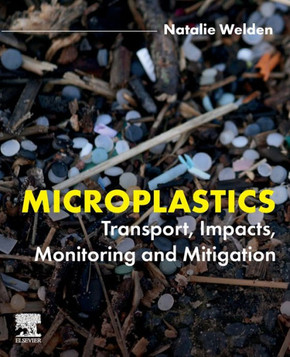
Daya Publishing House
Mitigating the Impact of Extreme Natural Events in Developing Countries
Product Code:
9789389569179
ISBN13:
9789389569179
Condition:
New
$80.00
$76.36
Sale 5%

Mitigating the Impact of Extreme Natural Events in Developing Countries
$80.00
$76.36
Sale 5%
The climate change at global level is leading to the alterations in weather and climate extremes. These climate extremes impact severely on both human and ecosystems including economic losses, sectors such as tourism, agriculture, urban settlements and small island states, etc. Scientists predict that the frequency and intensity of these disasters are likely to increase as a result of the effects of climate change. Their susceptibility is principally based on the geographical, geological and socio-economic characteristics. During the last few decades many countries in Asia and Africa encountered unforeseen natural disasters apparently due to both the climate change and deficiencies of the built environment. It seems that in the last five years such calamities have been accelerated such as Monsoon flooding in Bangladesh; Hurricane Irma in USA and Caribbean; floods in different regions of India, mudslide in Colombia and earthquakes in Mexico and Iran. These high-profile mega-disasters are raising global awareness of the need to build the capacity of national governments, civil society organizations and international entities to prevent, respond to and recover from natural disasters. In order to discuss the above issues, the Centre for Science and Technology of the Non-Aligned and Other Developing Countries (NAM S&T Centre) organized an international round table on 'Impacts of Extreme Natural Events: Science and Technology for Mitigation (IRENE)' in Colombo, Sri Lanka during 13-15 December 2017, which brought the scientists, experts and professionals engaged in R&D, policy making and implementation, social activists and other stake holders to a common forum for sharing views and experiences for the development of a road map for reducing the risks in real situations. This book comprises twenty-four papers from the researchers and professionals of 12 countries. The papers in this book have been categorised in four sections, namely, National Experiences, Regional Cooperation and South-South Relations, International Organisations and Networking and Theoretical Frameworks. The book is expected to be of great value to the immense use to all those associated with issues related to mitigation of mega-disasters due to extreme natural events, from researchers to policy makers, non-government organisations and government officials in the developing and other countries.
| Author: R J Durrheim |
| Publisher: Daya Publishing House |
| Publication Date: Jan 01, 2019 |
| Number of Pages: 302 pages |
| Language: English |
| Binding: Hardcover |
| ISBN-10: 9389569176 |
| ISBN-13: 9789389569179 |





